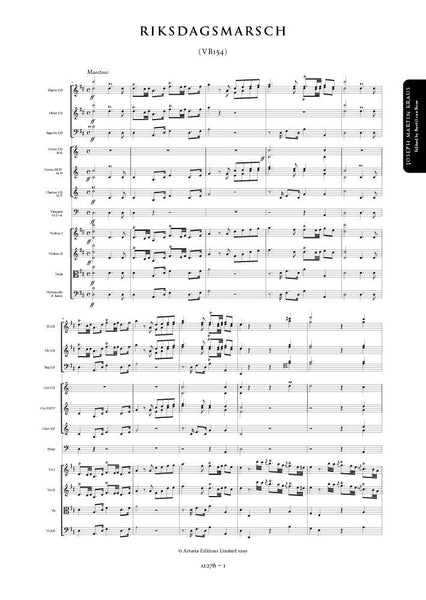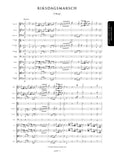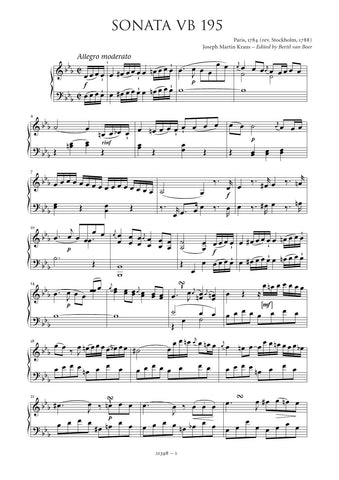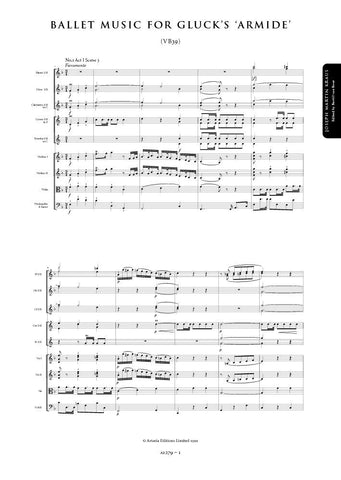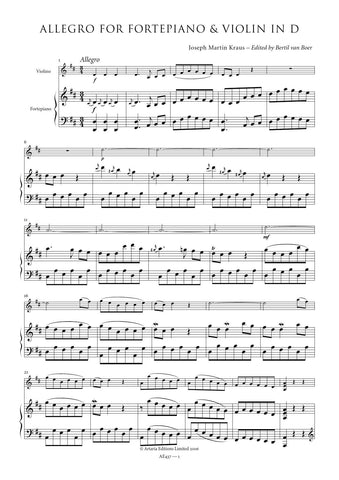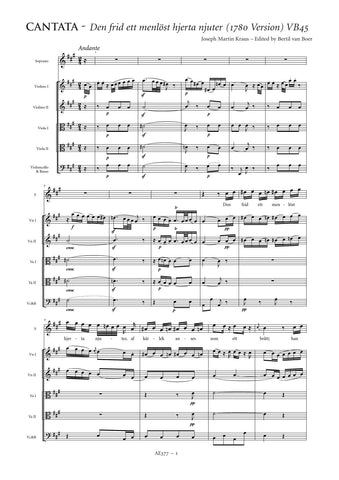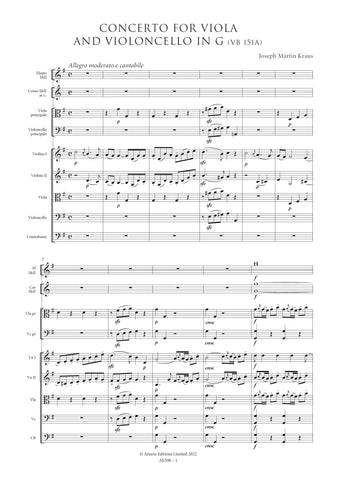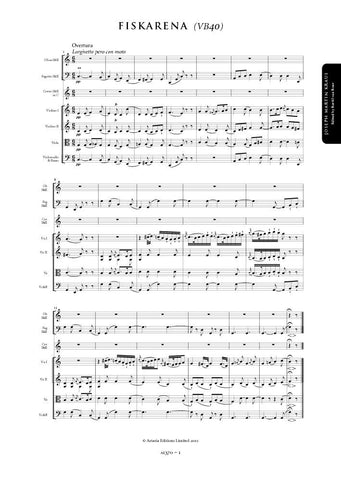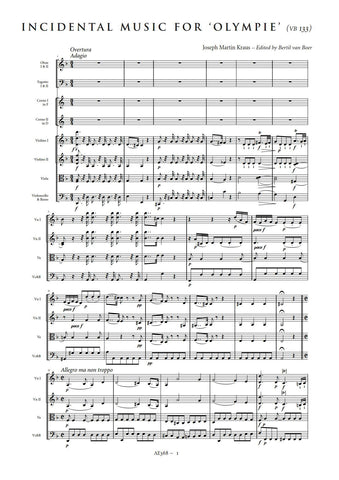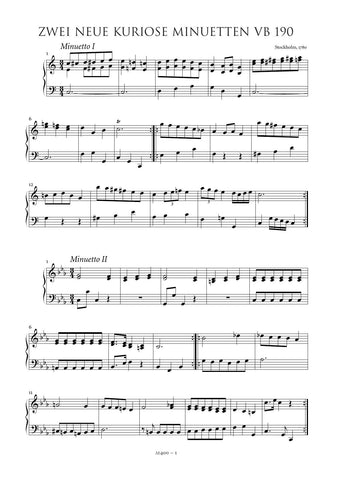Kraus, Joseph Martin: Riksdagsmarsch (VB 154) (AE278) – sheet music
Previous Product Next Product
Description |
Kraus, Joseph Martin (1756-1792)
|
||||||||||||||||
Audio sample |
|||||||||||||||||
Details |
The Riksdagsmarsch is an unusual work, in that it is a revision of a march composed by Wolfgang Amadeus Mozart in 1781 for his opera Idomeneo. It is not known how Mozart got ahold of his model, for Mozart's opera was all but unknown. During April-June 1783, however, both Kraus and Mozart lived in Vienna practically around the corner from each other on the Kohlmarkt, and while there is no mention of each other in their extensive correspondence, enough circumstantial evidence exists to suggest that some sort of personal contact was the most probable source of this march. Idomeneo is Mozart's most Gluckian opera, and Kraus, who was an ardent admirer of Gluck, would have immediately been drawn to it. But why he chose this particular work for the Gustavian court may have more to do with the Classical allusions than musical value. In the opera, King Idomeneo returns triumphantly to Crete after a long and ultimately victorious war with Troy to the jubilation of his people. Gustav's own propaganda about his military victories over Russia, his support of the local populace, and the patriotic paternalistic sentiment fits the march well. Kraus's reworking strengthens the power of the piece, with a more powerful emphasis upon the French dotted rhythms (surely a secondary allusion to the power of the French court, Sweden's traditional allies) and the extended fanfare-style coda. In his revision, Kraus has not only altered substantial portions of the work, he has extended it by over twenty bars. This edition is based upon a set of autograph parts preserved in the Royal Opera Library in Stockholm under signature Kyrkomusik 32, corroborated with a score by Kraus's friend and librarian of the Royal Opera Per Frigel. Both the score and parts agree in detail, showing their authentic origin. In keeping with Kraus's extremely precise notation, little regularisation or emendation has been needed. The horn clefs have been modernised to treble from their original C clef notations, although this does not affect their actual transposing notation in the original. Appogiaturas are given by Kraus consistently as sixteenth notes, to be performed as grace notes if the principal not to which it is attached is not evenly divisible, as equal length if it is. In those few instances where towards the end where ornaments have been left out in the flutes, they have been tacitly added following parallel cadential structures in the strings and other winds. Slurs have been added in the bassoons in m. 80-82 following parallel articulation in the oboes, and any other additions have been added in brackets. Bertil van Boer |
||||||||||||||||
Performance |
Melanchthon-Gymnasium |




